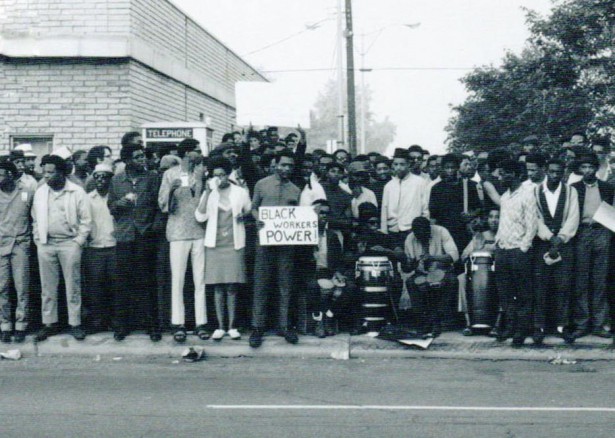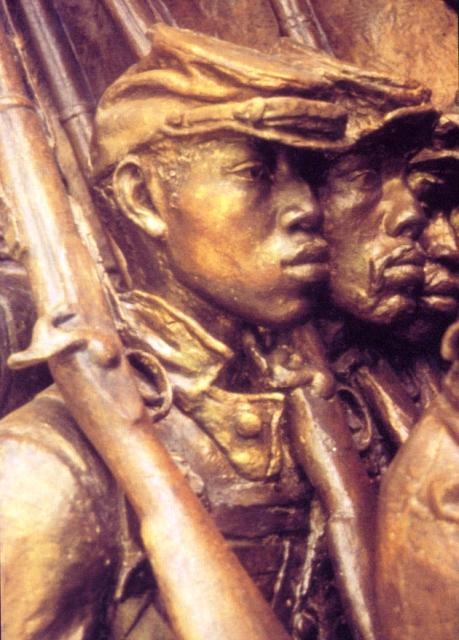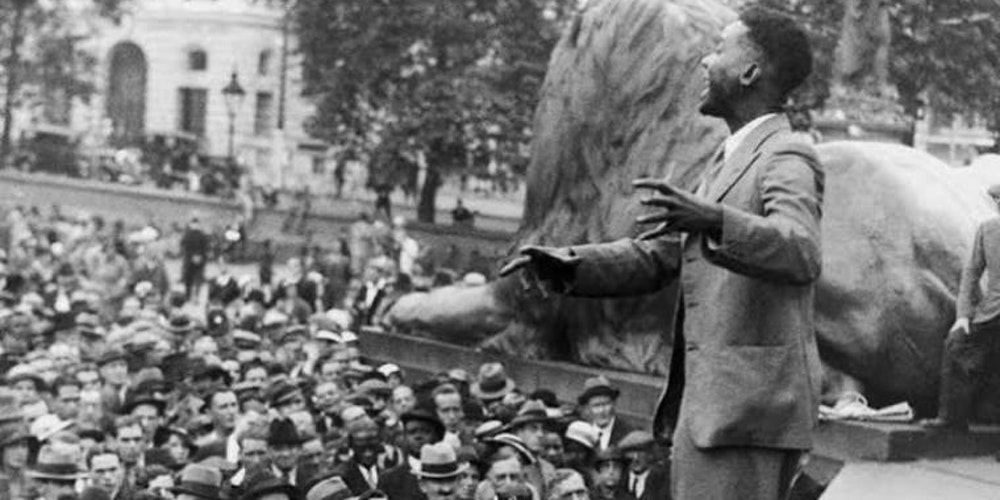Panel discussion on the life and legacy of Karl Marx as a revolutionary intellectual, hosted by the Platypus Affiliated Society on March 27, 2019 at the University of Tennessee (Knoxville).
Speakers:
Dr. Harry Dahms, University of Tennessee (Sociology)
Dr. Arnold Farr, University of Kentucky (Philosophy)
Dr. Spencer Leonard, Platypus Affiliated Society
Moderated by AJ Knowles.
Description:
This past year marked the 200th birthday of Karl Marx, than whom, as even his ideological opponent Isaiah Berlin had to admit, “no thinker in the nineteenth century has had so direct, deliberate and powerful an influence upon mankind.” This panel seeks to bring together intellectuals committed to exploring Marx’s legacy in this post-Marxist age, those who, once more, seek somehow to bring that legacy to bear upon the world. Accordingly, we want to raise the question: What is the legacy of Marx’s life as a revolutionary intellectual -- that is, the legacy of the political writings and activities he contributed to the socialist workers’ movement?
On February 17, 2018, the white-nationalist Traditionalist Workers’ Party (TWP) held a rally on the campus of the University of Tennessee. The rally was led by Matthew Heimbach, a central organizer of the Unite the Right rally held in Charlottesville, Virginia in August 2017 in opposition to the planned removal of a public statue of Confederate general Robert E. Lee. The TWP’s February 2018 rally on the University of Tennessee (UT) campus drew about 45 white nationalists, about 250 protesters, and about 200 law enforcement officers. UT allowed the TWP to hold its rally on the university campus despite the fact that no UT students or faculty had invited the TWP to campus; furthermore, the TWP’s rally neither addressed students nor included students in the invitation-only guest list for its campus rally. In light of these events, the Platypus Affiliated Society hosted a conversation on March 21st, 2018, about the Left’s relation to racism and fascism on campus and in society at large. Speakers included Jordan Rogers, President of the UT chapter of the Young Democratic Socialists of America (YDSA); Dr. Raja Swamy, Assistant Professor of Anthropology at UT; and Chris Irwin of the Appalachian Anti-Racist Action Tea Party. The event was moderated by Spencer Leonard of Platypus. Speakers included Jordan Rogers, President of the UT chapter of the Young Democratic Socialists of America (YDSA); Dr. Raja Swamy, Assistant Professor of Anthropology at UT; and Chris Irwin of the Appalachian Anti-Racist Action Tea Party. The event was moderated by Spencer Leonard of Platypus.



Anti-Platypus propaganda painted on "The Rock" on the UT campus while the event was ongoing.
A series of four films on the black experience in revolutionary history
• 1773 / 1784–89: Jefferson in Paris (1995)
• 1863: Glory (1989)
• 1930-68: Every Cook Can Govern: The Life of CLR James (2016)
• 1970: Finally Got the News (1970)
Sundays, 8:00 PM
Lindsay Young Auditorium
John C. Hodges Library
University of Tennessee
1015 Volunteer Blvd.

Jefferson in Paris (1995)
February 4, 2017
1873: Reconstruction-era Ohio: A reporter interviews Madison Hemings, a descendant of Thomas Jefferson and Sally Hemings, telling their story. 1784–89: Leading up to the French Revolution, Jefferson is the U.S. ambassador to France, whose intellectuals, such as American Revolutionary War veteran Lafayette, join the revolt of the Third Estate, hoping to follow the American example. Jefferson helps them compose the Declaration of the Rights of Man and Citizen, discussing his frustration at the American failure to abolish slavery. Jefferson begins a relationship and fathers a child with his slave Sally Hemings, sister of his deceased wife, promising to free her and her children.
"He has waged cruel war against human nature itself, violating its most sacred rights of life and liberty in the persons of a distant people who never offended him, captivating & carrying them into slavery in another hemisphere or to incur miserable death in their transportation thither. This piratical warfare, the opprobrium of infidel powers, is the warfare of the Christian King of Great Britain. Determined to keep open a market where Men should be bought and sold, he has prostituted his negative for suppressing every legislative attempt to prohibit or restrain this execrable commerce."
- Thomas Jefferson, original draft of the Declaration of Independence (1776)"I do not permit myself to take part in any new enterprises, even for bettering the condition of man, not even in the great one which is the subject of your letter [the abolition of slavery], and which has been thro' life that of my greatest anxieties. the march of events has not been such as to render it’s completion practicable within the limits of time alloted to me; and I leave it's accomplishment as the work of another generation. and I am cheared when I see that on which it is devolved, taking it up with so much good will, and such mind engaged in it’s encoragement. the abolition of the evil is not impossible: it ought never therefore to be despaired of. every plan should be adopted, every experiment tried, which may do something towards the ultimate object. that which you propose is well worthy of tryal. it has succeeded with certain portions of our white brethren, under the care of a [Christian communist George] Rapp and an [Utopian Socialist Robert] Owen; and why may it not succeed with the man of colour?"
- Jefferson, letter to Frances Wright (1822)

Glory (1989)
February 11, 2017
1863: After the Union victory at Antietam, Lincoln orders the Emancipation Proclamation. Robert Gould Shaw, the son of an influential Abolitionist, is promoted to Colonel and given command of the 54th Massachusetts Volunteer Infantry, the first all-black regiment of Union soldiers, organized by Frederick Douglass.
Directed by Edward Zwick. Starring Matthew Broderick, Denzel Washington, Morgan Freeman, and Cary Elwes. Music by James Horner.
Glory is based on the letters of Robert Gould Shaw, son of New England Abolitionists, chosen to lead the first black regiment in the Union Army during the U.S. Civil War. After the 1960s, revisionist historiography questioned the nature of the Civil War in the fight to overcome slavery. Post-Reconstruction anti-black racism seemed to belie the struggle for social equality and freedom exemplified by Abolitionism, but, as Robert Lowell wrote in his poem "For the Union Dead" during the Civil Rights era, this history continued to demand redemption.
"While the workingmen, the true political powers of the North, allowed slavery to defile their own republic, while before the Negro, mastered and sold without his concurrence, they boasted it the highest prerogative of the white-skinned laborer to sell himself and choose his own master, they were unable to attain the true freedom of labor, or to support their European brethren in their struggle for emancipation; but this barrier to progress has been swept off by the red sea of civil war.
The workingmen of Europe feel sure that, as the American War of Independence initiated a new era of ascendancy for the middle class, so the American Antislavery War will do for the working classes. They consider it an earnest of the epoch to come that it fell to the lot of Abraham Lincoln, the single-minded son of the working class, to lead his country through the matchless struggle for the rescue of an enchained race and the reconstruction of a social world."
— Karl Marx, letter to President Abraham Lincoln (1864)
Every Cook Can Govern: The life and impact of CLR James (2016)
February 18, 2017
The ideas and works of Trinidad-born revolutionary and writer C.L.R. James come to life as exclusive never-before-seen footage of the man himself is interwoven with testimony from those who knew him along with leading scholars providing astute contextual and political analysis of his life and works. The result is a historical tour-de-force which grapples with James’ thoughts on culture, cricket and society and above all his politics, in particular his outspoken opposition to: colonialism, abolitionist myths, the Second World War and Marxism and his belief in the capacity of us all to change the world.
Having been trained from scratch by WORLDwrite and its Citizen TV station WORLDbytes to shoot, research and present, over 200 volunteers have been the backbone of this world-first production which, crowd-featured and crowd-filmed, does credit to James’ conviction that every cook can govern.
"This independent Negro movement is able to intervene with terrific force upon the general social and political life of the nation, despite the fact that it is waged under the banner of democratic rights ... [and] is able to exercise a powerful influence upon the revolutionary proletariat, that it has got a great contribution to make to the development of the proletariat in the United States, and that it is in itself a constituent part of the struggle for socialism."
— C.L.R. James, "The Revolutionary Answer to the Negro Problem in the United States" (1948)

Finally Got the News (2016)
February 25, 2017
This documentary offers black workers views of working conditions inside Detroit’s auto factories, focusing on the League of Revolutionary Black Workers and their efforts to build an independent black labor organization. Beginning with a historical montage, from the early days of slavery through the subsequent growth and organization of the working class, the film examines the crucial role of the black worker in the American economy.
"When one approaches the League one must look at the whole phenomenon it represented and one must also put oneself in the period in which it appeared. One can look at some of the nationalist ideas promoted by the League or look at some of its various extravagant scheme-mongering or look at the character of some of its leaders and tend to write off the whole thing as a bad phenomenon. But it is important to remember that the League wasn't just a handful of careerist elements. The League wasn't just John Watson or Ken Cockrel and Mike Hamlin. It in fact represented an objective phenomenon which was progressive. The League of Revolutionary Black Workers represented an objective mass trend among militant black workers at that time. Thus when we are talking about the Marxist-Leninist approach to the League we are talking about how to approach this objective trend.
Of course Marxist-Leninists would not set out to organize separate black workers organizations in the workplaces. But when one is talking about the League one is not talking about something that the Marxist-Leninists set out to do as part of their plans and programs; rather it is a question of what do you do faced with something thrown up by the spontaneous movement? What do you do when faced with a trend of fighting black workers that comes up on its own? Under the current conditions in the working class movement, it does happen that black workers at times feel that the fight against racism is their own struggle and that white workers will not take up such a fight. And if the black workers organize under such conditions and with such sentiments, one cannot go and tell the black workers: no, you shouldn't organize to fight until you are convinced that workers of all nationalities can be mobilized into this fight. No, one must find ways to get close to these workers and find ways to bring them to class conscious and really revolutionary positions.
-- Speech on the LRBW, 2nd National Conference of the Marxist-Leninist Party, USA (1984)
Introductory workshop to the development of freedom in human history from the Platypus perspective, hosted by Ethan Linehan at the University of Tennessee (Knoxville), September 24, 2017.
Description:
In the mid-19th century, Marx and Engels famously observed that a "spectre was haunting Europe: the spectre of Communism". 170 years later, it is Marxism itself that haunts us, while capitalism remains.
What does it mean that Marx and Marxism still appeal, while political movements for socialism are weak or non-existent? What were Marxism's original points concerning radical possibilities for freedom that might still speak to the present?
Does Marxism even matter?
Hosted by the Platypus Affiliated Society at the University of Tennessee (Knoxville) on April 26, 2017.
Speakers
• Travis Donoho, Co-chair of the Knox area Democratic Socialists of America
• Barbara Bridges, Chair of the Green Party (US) of Knoxville
• Jason Dawsey, Lecturer of History at the University of Tennessee
Moderated by Matt Cavagrotti
Panel Description
Electoral politics are a longstanding problem for the U.S. left. In recent decades, a number of parties have formed as an alternative to the Democratic Party: the Labor Party, the Green Party, and now, the Justice Party. However, these parties risk becoming little more than networks of activists or pressure groups on the Democratic Party, and it still remains unclear whether a serious electoral challenge to the Democratic Party is possible.
Many progressives blame the “first-past-the-post” structure of U.S. elections, contra labour-friendly parliamentary systems; yet others insist that this procedural focus is misplaced. Leninists charge some quarters of the Left with misunderstanding the proper relationship of the party to the state; but for many, it remains unclear how State and Revolution bears upon the present. Most activists grant the desirability of a viable party to the left of the Democrats, but why exactly such a party is desirable-- to win reforms? to spread emancipatory consciousness?-- is contested as well.
These are old questions for the American left-- as old as Henry George, Daniel De Leon, and the 1930s American Labor Party, perhaps the high point of independent electoral politics in the U.S. This panel will investigate several contemporary approaches to electoral politics to draw out the theories that motivate Leftist third parties; it will also ask how the historical achievements and failures of third parties bear upon the present.
Questions
1. How does the present election represent an opportunity for the development of a third party?In what ways have Bernie Sanders, Donald Trump, Jill Stein, and Gary Johnson each helped develop a window of opportunity for a third party?
2. In what ways might these figures be responsible for miseducating, depoliticizing, or simply misdirecting potential allies?
3. What conditions would a Clinton or Trump administration produce for the left? How would each represent a challenge to the Left?
4. How might a third party avoid simply becoming either an instrument for pressuring the Democratic Party to the Left or a mere recruiting tool for activist and sectarian organizations? In other words: what are the practical and theoretical obstacles to the development of the Left beyond the default form of activity that have characterized it since the mid-20th century?
5. While we take for granted that a third party would have to distinguish itself from the two major parties, how could a third party attempt to draw from voters from both the Democrats and the Republicans?
6. The rise of progressivism and socialism in the late 19th/early 20th century defined every attempt at the development of a third party in the 20th century. How are progressive and socialist politics distinct and/or related? What role would each play in the development of a mass third party for the 21st century?



